An adjective is a word that describes a noun, giving extra information about it. For example:
a sweet taste
a red apple
a technical problem
an Italian woman
Attributive and predicative adjectives
Most adjectives can be used in two positions. When they are used before the noun they describe, they are called attributive:
a black cat
a gloomy outlook
a slow journey
a large suitcase
When they are used after a verb such as be, become, grow, look, or seem, they’re called predicative:
The cat was black.
The future looks gloomy.
The journey seemed slow.
They were growing tired.
There are some adjectives that can only be used in one position or the other. For example, these two sentences are grammatically correct:
✓ She was alone that evening. [‘alone’ = predicative ]
✓ It was a mere scratch. [‘mere’ = attributive]
These sentences, on the other hand, are not correct:
✗ I saw an alone woman. [‘alone’ cannot be used in the attributive position]
✗ The scratch was mere. [‘mere’ cannot be used in the predicative position]
Comparative and superlative adjectives
Most adjectives have three different forms, the positive, the comparative, and the superlative:
positive
comparative
superlative
sad
sadder
saddest
happy
happier
happiest
unusual
more unusual
most unusual
The comparative form is used for comparing two people or things:
He is taller than me.
This puzzle is easier than the last one.
The book was more interesting than the film.
The superlative is used for comparing one person or thing with every other member of their group:
He was the tallest boy in the class.
This puzzle is the easiest in the whole book.
It’s the most interesting book I’ve ever read.
As you can see, some adjectives change their spelling when forming their comparative and superlative forms. For more information about this, see Spelling rules and tips.
You’ll find that most dictionaries will show you the spellings of adjectives that change their form. For example, if you look up ‘happy’ in Oxford Dictionaries, you’ll see that the comparative and superlative forms are given in brackets directly after the part of speech:
happy ► adjective (happier, happiest)
Always look up an adjective if you are unsure about how to spell its comparative or superlative form.
Gradable and non-gradable adjectives
Most adjectives are gradable. This means that their meaning can be modified (made stronger, weaker, or otherwise altered) by placing one or more adverbs in front of them. For example:
an expensive car
a very expensive car
a fairly expensive car
an extremely expensive car
The adverbs very, fairly, and extremely are telling us where this particular car belongs on the scale of ‘expensiveness’. By using them, we can make a significant difference to the meaning of an adjective.
Non-gradable adjectives are those with meanings which cannot be modified by adverbs. For example:
the western side of the mountain
electronic devices
a nuclear reactor
It would be very strange to see any of the adjectives in the above examples being used with modifying adverbs such as very, fairly, or extremely; things are either western, electronic, or nuclear, or they’re not. These sorts of adjectives are part of the category known as classifying adjectives.
Qualitative and classifying adjectives
Not all adjectives have a comparative and superlative form nor can they all be graded. This is because there are two types of adjective, known as qualitative and classifying.
Qualitative adjectives describe the qualities of a person or thing – whether they are large or small, happy or sad, etc. This type of adjective is gradable. For example:
a fairly tall man
a very boring film
a really long holiday
an extremely expensive car
Classifying adjectives place people and things into categories or classes. Do you read a daily newspaper or a weekly one? Does your house have an electric oven or a gas oven? Here are some more examples of classifying adjectives:
the western hemisphere
an annual event
the external walls
a nuclear weapon
Classifying adjectives don’t generally have comparative and superlative forms. It would sound strange to describe one event as ‘more annual’ than another, for example, or one weapon as ‘the most nuclear’. In general, classifying adjectives are also non-gradable. An event cannot be ‘very annual’ nor an oven ‘fairly electric’.
adjective part 1 for HTET CTET HSSC SSC CGL BANK EXAMS
adjective part 2 for HTET CTET HSSC SSC CGL BANK EXAMS
Adjective part 3 for REET HTET CTET HSSC SSC CGL BANK EXAMS
Adjective part 4 for REET HTET CTET HSSC SSC CGL BANK EXAMS
source













![CY_GATE_2019_PHYSICAL_SPECTROSCOPY_[ELECTRONIC_BASIC]_All IN ONE_[Short_Trick]_2018-19_PART_1ST - Videos](https://trends.edugorilla.com/wp-content/uploads/sites/8/2018/08/cy_gate_2019_physical_spectroscopy_electronic_basic_all-in-one_short_trick_2018-19_part_1st-218x150.jpg)






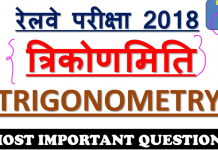
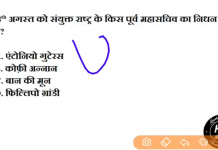
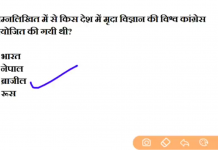
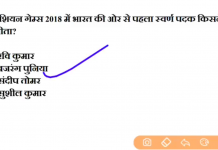





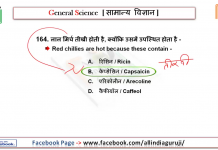


![24 August 2018 – The Indian Express Newspaper Analysis हिंदी में – [UPSC/SSC/IBPS] Current affairs - Videos](https://trends.edugorilla.com/wp-content/uploads/sites/8/2018/08/a520-218x150.png)
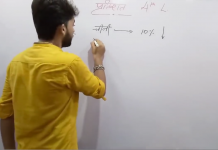



good morning sir. very nice
nice video sir ji thanks for video
Excellent explanation g.. Thanku keep doing
okk sir
Thanks sir
Very nice vedios sir… Thanks